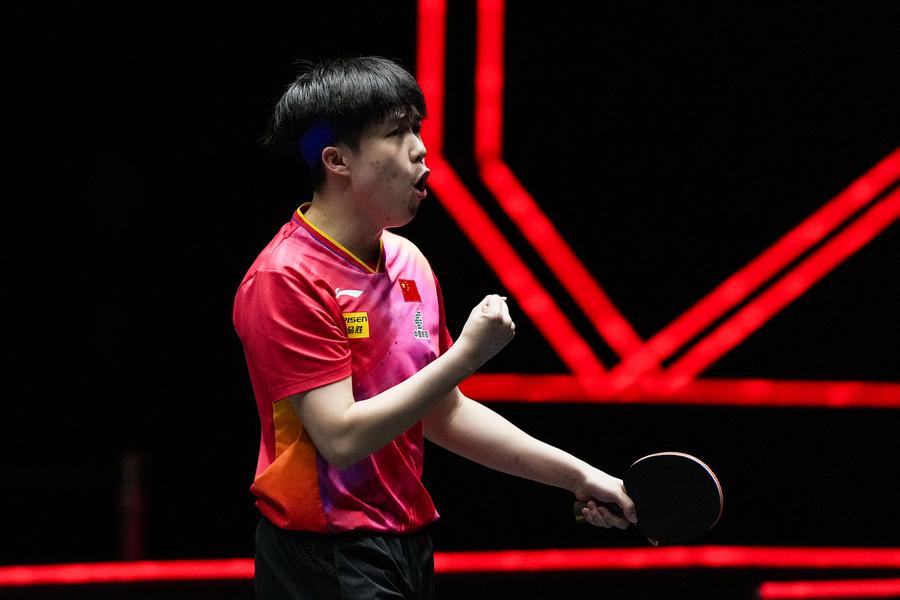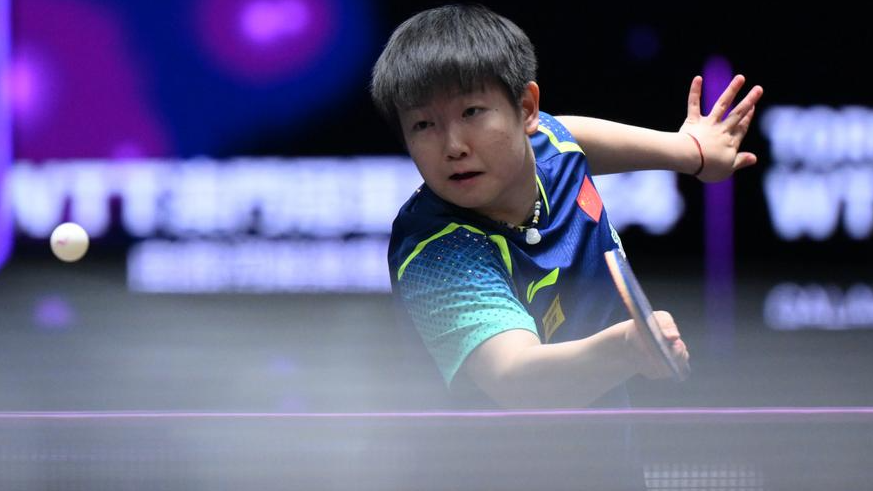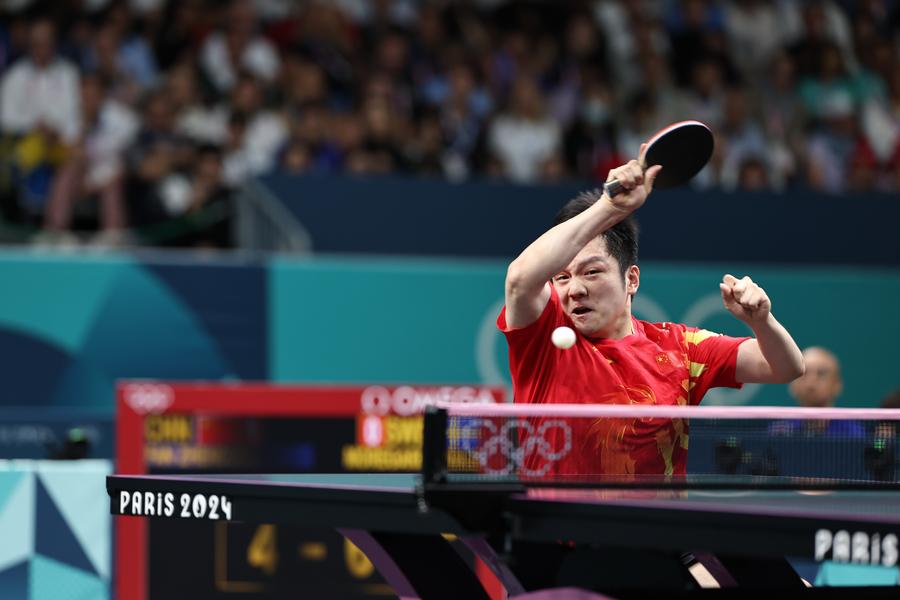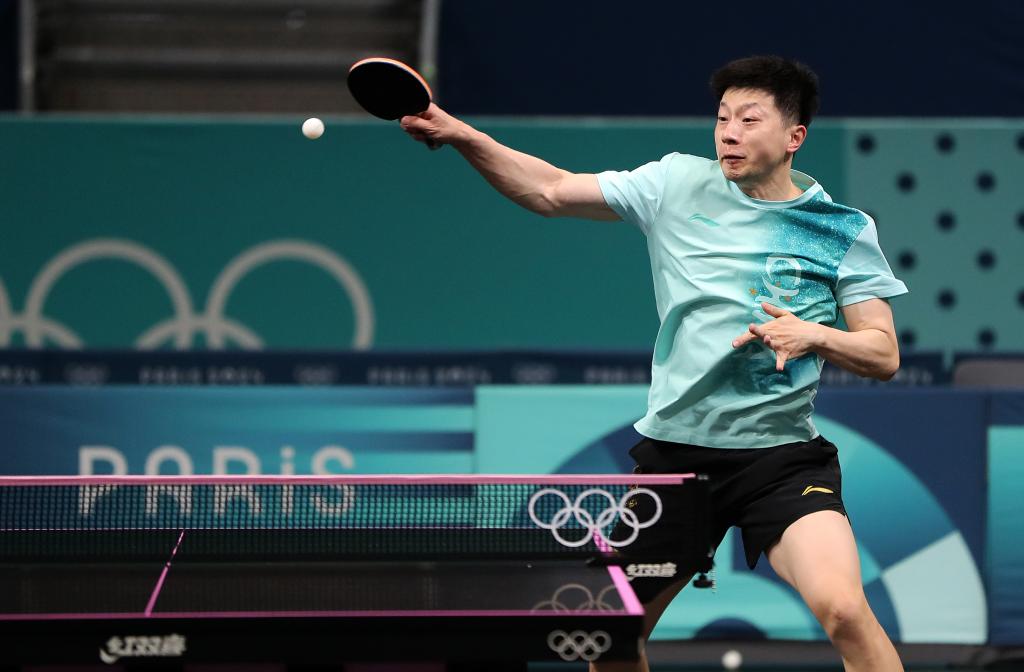China’s table tennis stars dominated all that came before them in a trophy-laden 2024

In a year of unparalleled dominance, China’s table tennis team did not just win — it swept. Five Olympic gold medals in Paris. World championships in every category of the sport. Ten titles that underscored its iron grip on a game it has long ruled.
Adding to this stellar record, the team dominated the year-end ITTF rankings, claiming No 1 spots in four of the five categories. Wang Chuqin and Sun Yingsha led the men’s and women’s singles, respectively, while the pairs of Chen Meng and Wang Manyu led the women’s doubles and Wang Chuqin and Sun led the mixed doubles, closing out the year with a commanding statement of their supremacy.
Yet, behind the glittering victories lies a more complex story. Concerns over a smooth generational transition and the pressures of celebrity-like attention on star players now loom large, raising critical questions about the team’s future path to sustained excellence.
At the Paris Olympics, China’s table tennis team delivered a historic sweep, claiming all five gold medals and reaffirming its unshakable dominance on the global stage.
The mixed doubles event marked a significant breakthrough, with Wang Chuqin and Sun clinching a first-ever Olympic gold for China in the discipline. In men’s singles, Fan Zhendong secured his maiden Olympic gold, completing a career Grand Slam. On the women’s singles stage, Chen triumphed in a thrilling showdown against teammate Sun to capture her second consecutive Olympic title.

In the team competitions, China’s dominance continued unabated. Both the men’s and women’s teams extended their Olympic reigns to five consecutive gold medals, showcasing unparalleled collective strength.
China’s supremacy extended beyond the Olympics. In February, the team claimed both men’s and women’s titles at the World Table Tennis Team Championships in Busan, South Korea.
April’s World Cup in Macao saw China sweep the men’s and women’s singles finals.
Ma Long defeated Lin Gaoyuan to secure his third World Cup title, notching his 30th career world championship and cementing his legendary legacy. On the women’s side, Sun narrowly edged Wang Manyu to claim her first World Cup title, adding another accolade to her growing resume.
December brought yet another resounding victory. At the ITTF Mixed Team World Cup Finals in Chengdu, Sichuan province, China decisively defeated rival South Korea 8-1, successfully defending its title and capping off a year of exceptional success.
However, beyond the glimmering victories, cracks have begun to show in China’s table tennis dominance. At the Asian Table Tennis Championships, the team secured just two titles — in men’s team and mixed doubles — while the women’s team suffered a stunning 3-1 loss to Japan, failing to claim the championship for the first time since 1990.
These missteps exposed gaps in preparation and on-the-spot execution, underscoring the need for stronger mental resilience among younger players.
At the WTT Champions Montpellier tournament, the absence of six Olympic champions further tested the team’s depth. Neither the men’s nor women’s singles competitors reached the finals.

National team head coach Li Sun acknowledged the hurdles, attributing the dip in performance to a packed post-Olympic schedule that left top players with limited time for systematic training and recovery.
“The start of a new Olympic cycle brings a more open competitive landscape. Our main players have struggled to regain peak form, and younger talents, like Lin Shidong, need more time and match experience to develop,” he said.
Li assured fans that the coaching team is taking the issues seriously and is committed to addressing them.
“The key is to learn from these setbacks,” he added.
He called for understanding and patience from fans, reaffirming the team’s unwavering confidence and determination to rise above challenges and pursue victory.
As one of China’s most celebrated sports, table tennis has propelled its star players into the spotlight, amassing devoted fans, but also exposing them to the darker side of “fan culture”.
After the women’s singles final at the Paris Olympics between Chen and Sun, hundreds of social media accounts were penalized on platforms like Weibo and Douyin for aggressive comments and personal attacks on the athletes.
Men’s singles champion Fan has been particularly affected, often voicing frustration over disruptive fan behavior. He has repeatedly urged supporters to show rational backing and called out inappropriate behavior, especially in private spaces like hotels, which he says have caused significant distress.

While competing in the first stage of the China Table Tennis Super League in Changsha, Hunan province, in December, Fan took to Weibo again, writing: “Thank you for your support, but there are better ways and occasions for it. Stay true to yourself and respect others. I sincerely ask for understanding and respect from fans.”
Later that month, Fan made waves by announcing his “retirement from all ITTF-sanctioned events”, which includes events sanctioned by WTT.
“Apart from committing to the next National Games, I have no specific plans for my future career yet,” he wrote on Weibo. “I’m still here, not retiring, and will continue striving in different arenas.”
On the same day, Chen made a similar announcement in a separate statement on Weibo.
As a result, China’s table tennis team faces a crucial crossroads and will need to fast-track its generational transition.
Liu Guoliang, president of the Chinese Table Tennis Association, revealed plans to provide more opportunities for young players starting with the new cycle in 2025.
“We will focus on assembling a refreshed team, prioritizing the systematic development of both coaches and players. This will be organized strategically, taking into account factors such as age, playing style, and the overall team structure,” Liu said.


